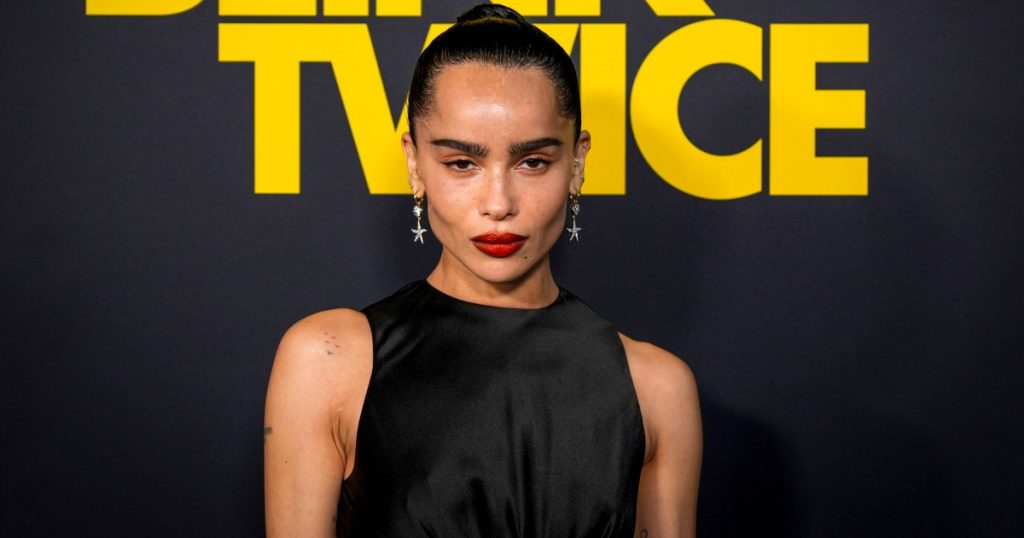Zoë Kravitz recently made her directorial debut with the thriller film “Blink Twice,” which she describes as a deep cultural analysis of power, specifically focusing on how people seek power, abuse it, and the consequences of power imbalances. The film centers around two young women, Frida and Jess, portrayed by Naomi Ackie and Alia Shawkat, who encounter a charming but creepy billionaire, Slater King, played by Kravitz’s fiancé, Channing Tatum. As the story unfolds on King’s private island, the women are subjected to eerie circumstances and social observations on how women are expected to behave in society.
Kravitz wanted to highlight the absurdity of societal expectations on women through “Blink Twice,” emphasizing how women are often required to suppress their feelings, smile through trauma, and communicate non-verbally due to a lack of safety. She cast Channing Tatum as Slater King to challenge the stereotype of predators, making him feel charming and safe initially. Naomi Ackie’s portrayal of Frida was pivotal in making the characters relatable and real to the audience, as she navigates through a range of emotions and experiences throughout the film.
Though the character of Slater King in “Blink Twice” may remind audiences of high-profile men accused of sexual misconduct, Kravitz steers away from direct comparisons, stating that the film is based on her own observations and experiences and aims to address the broader issue of power dynamics and mistreatment of women. The film took almost five years to develop, first beginning as a novella before being adapted into a script by Kravitz and E.T. Feigenbaum. The timely nature of the film speaks to the prevalence of sexual mistreatment of women across various sectors of society.
Kravitz’s exploration of power dynamics in “Blink Twice” delves into the complexities of wanting power, the abuse that often follows, and the impact of power imbalances on individuals and society as a whole. The film uses the backdrop of a thriller narrative to address deeper societal issues and how women are often marginalized and expected to conform to certain behaviors. By steering the focus away from individual cases of abuse to a broader discussion on power dynamics, Kravitz aims to shed light on the pervasive nature of mistreatment faced by women in various contexts.
Through the character of Slater King and the experiences of the female protagonists, “Blink Twice” challenges traditional narratives around power, gender dynamics, and societal expectations. The film offers a nuanced portrayal of how power can influence behavior, relationships, and societal structures, using the thriller genre to engage audiences with deeper themes and messages. As Kravitz reflects on the making of the film and its timeliness in addressing issues of power and mistreatment, she emphasizes the importance of recognizing power dynamics in various relationships and contexts beyond the confines of traditional narratives.


